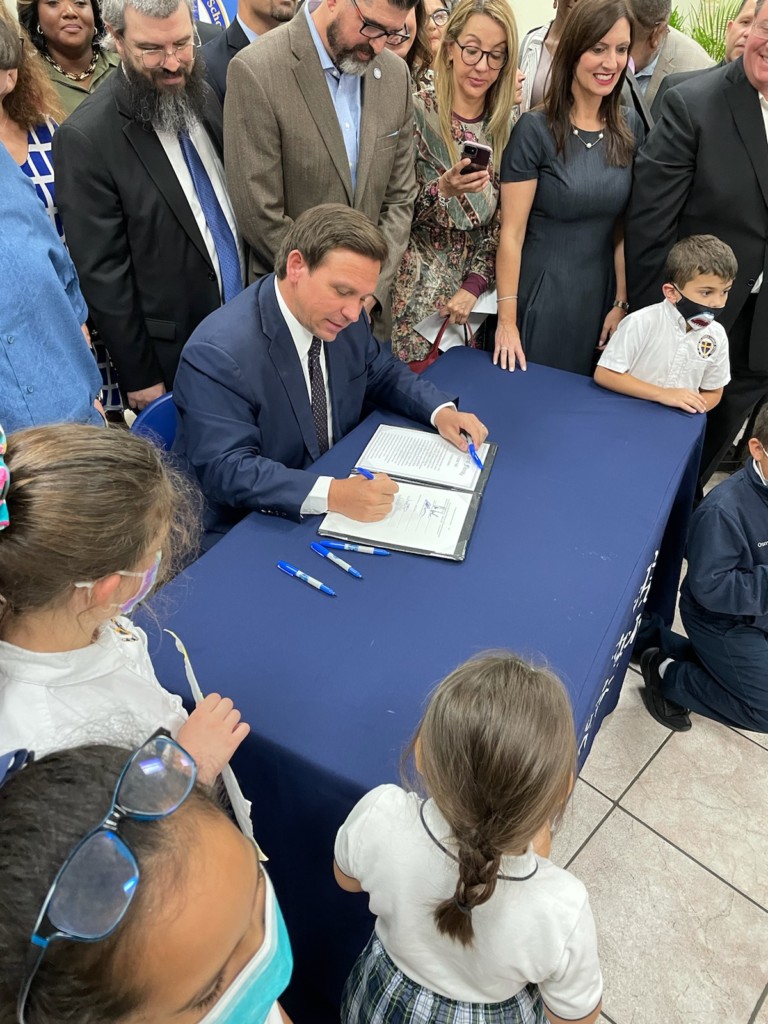
Florida Gov. Ron DeSantis signed into law in May a bill that expanded the state’s K-12 scholarship programs by as many as 61,000 students and boosted the maximum eligibility to receive a scholarship to 375% of the federal poverty level.
Following up on the Wall Street Journal’s declaration that 2021 is “the year of school choice,” politics and government reporter Alan Greenblatt reported in depth this week for Education Next on education choice wins in several states. Greenblatt singled out Florida for high praise:
Florida remains a leader in providing options for families. About one in four U.S. children taking advantage of private-school-choice programs live in Florida. The state is continually expanding its offerings.
A law enacted in May 2021 merged various programs while increasing private-school scholarships to 100 percent of per-pupil funding. The bill prioritizes low-income families making under 185 percent of the federal poverty level ($49,000 for a family of four) but expands eligibility to encompass those making up to 375 percent of the federal poverty level, or just under $100,000 for a family of four. The law also eliminates the old requirement that students enroll in public schools before applying for a scholarship, and it exempts military families from program limits and waiting lists.
In Florida, choice supporters are well organized, enjoying strong champions both in the legislature and in Gov. Ron DeSantis, a Republican who has appointed choice-receptive justices to the state supreme court. Daniel Aqua, the executive director of Teach Florida, suggests that the state’s population growth has also helped promote its school-choice experiment, with both private and public schools seeing increasing enrollment. “With tremendous population growth comes decreased competition for children,” he says.
All told, Greenblatt writes, seven states created new programs this year, while 11 more expanded existing options. He cites several factors that account for this achievement: the pandemic’s forced closure of schools sent families scrambling for out-of-the-mainstream options; the pandemic’s forced closure of state capitols left teachers and parents opposed to choice programs unable to gain easy access to legislators; and the fact that Republicans gained or expanded their power at the state level last year, with Democrats failing to take control of a single legislative chamber.
On the latter point, Greenblatt expounds by quoting EdChoice’s Robert Enlow: “This is a bipartisan issue, and it should be, but in places like West Virginia, the outcome of the election emboldened legislators.”
You can read the full article here.